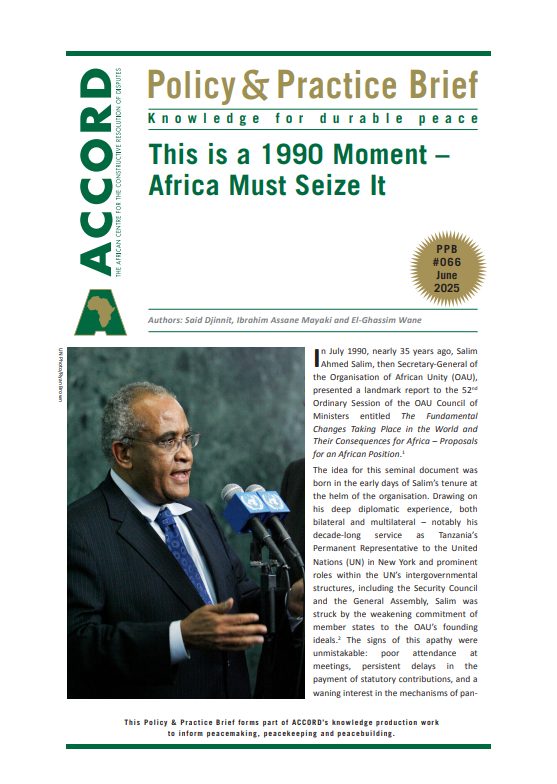
The continuity between the OAU and the AU runs far deeper and is more consequential than is commonly acknowledged
In July 1990, nearly 35 years ago, Salim Ahmed Salim, then Secretary-General of the Organisation of African Unity (OAU), presented a landmark report to the 52nd Ordinary Session of the OAU Council of Ministers entitled ‘The Fundamental Changes Taking Place in the World and Their Consequences for Africa – Proposals for an African Position’.[1]
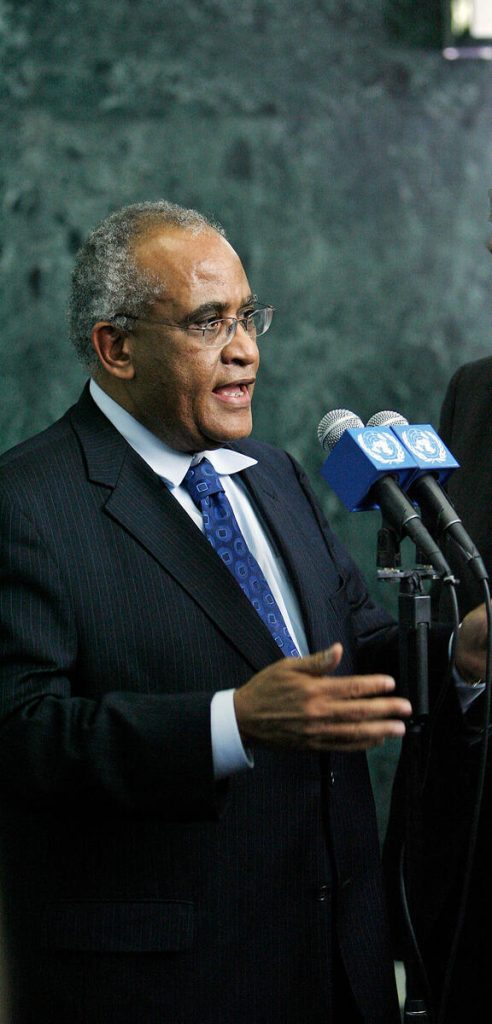
The idea for this seminal document was born in the early days of Salim’s tenure at the helm of the organisation. Drawing on his deep diplomatic experience, both bilateral and multilateral – notably his decade-long service as Tanzania’s Permanent Representative to the United Nations (UN) in New York and prominent roles within the UN’s intergovernmental structures, including the Security Council and the General Assembly, Salim was struck by the weakening commitment of member states to the OAU’s founding ideals.[2] The signs of this apathy were unmistakable: poor attendance at meetings, persistent delays in the payment of statutory contributions, and a waning interest in the mechanisms of pan-African solidarity. With the liberation struggle largely over and apartheid beginning to collapse, the OAU – long defined by its role in ending foreign domination and minority rule – now found itself in search of a new raison d’être.
And yet, the challenges had not disappeared – they had simply evolved. While some conflicts were coming to an end, others persisted or erupted, bringing with them the all-too-familiar toll of civilian suffering and, in some instances, the complete collapse of governance structures. Economic development and continental integration, despite the commitments made under the 1980 Lagos Plan of Action and Final Act, remained more aspirational than real.[3] The human rights situation was no less troubling, even though the adoption of the African Charter on Human and Peoples’ Rights a decade earlier – preceded in 1969 by the OAU Convention Governing the Specific Aspects of Refugee Problems in Africa – offered a glimmer of hope.[4] Democracy, though gaining ground in several parts of the continent, remained fragile, its future uncertain.
The imperative for Africa to reorient and reposition itself had become all the more urgent – especially as the world underwent seismic transformations: the fall of the Berlin Wall in November 1989 and the end of the Cold War, the wave of democratisation across Eastern Europe, and the acceleration of regional integration in Europe and the Americas. These transformations demanded Africa’s adaptation and opened up new opportunities the continent could not afford to miss – lest it be relegated to the sidelines of the then-emerging world order.
Salim did more than offer a candid diagnosis of the continent’s predicament – he also advanced concrete proposals. These were structured around the key challenges he identified and were largely endorsed in the Declaration on the Political and Socio-Economic Situation in Africa and the Fundamental Changes Taking Place in the World, adopted by the 26th Ordinary Summit of the OAU held in Addis Ababa in July 1990.[5] The Declaration became a catalyst for a broad spectrum of decisions and initiatives across the organisation’s areas of work, while also paving the way for subsequent institutional reforms. Notable among these were:
- The Abuja Treaty of June 1991, establishing the African Economic Community;
- The Cairo Declaration of June 1993, which gave rise to the Mechanism for Conflict Prevention, Management and Resolution;
- The Lomé Declaration of July 2000 on Unconstitutional Changes of Government; and
- The Solemn Declaration on the Conference on Security, Stability, Development and Cooperation in Africa (CSSDCA), also adopted in Lomé and further reinforced by the Memorandum of Understanding agreed upon two years later in Durban, South Africa.[6]
This latter document introduced wide-ranging and, in many respects, groundbreaking commitments, particularly in the field of governance.[7]
Many of the African Union’s (AU) subsequent achievements can be traced directly to the foundations laid by these landmark documents. As underscored in the piece written on the occasion of the 30th anniversary of the 1990 Declaration, it is both unfair and historically reductive to portray the OAU as nothing more than a ‘dictators’ club’ primarily concerned with mutual protection.[8] In truth, the defining moment in the evolution of the continental organisation occurred in 1990. The continuity between the OAU and the AU runs far deeper and is more consequential than is commonly acknowledged.
There is a striking parallel between that period and the one we are living through today: the magnitude of the upheavals. The multilateral system conceived in the aftermath of the Second World War is arguably undergoing the most profound crisis in its history. This is evident in the dysfunctionality of the UN Security Council – the cornerstone of the collective security architecture enshrined in the UN Charter; the erosion of the World Trade Organisation’s (WTO) authority to arbitrate trade disputes, increasingly dealt with through unilateral tariffs and retaliatory measures; and the weakening of international disarmament regimes. A notable example relates to anti-personnel land mines, whose devastating impact spurred one of the most remarkable instances of multilateral and civil society mobilisation in the 1990s, culminating in the Ottawa Treaty of December 1997.[9] National self-interest is resurgent, reflected in the rise of anti-migrant sentiment and a sharp decline in development assistance. International law – never fully insulated from the realities of power politics – continues to suffer serious violations.
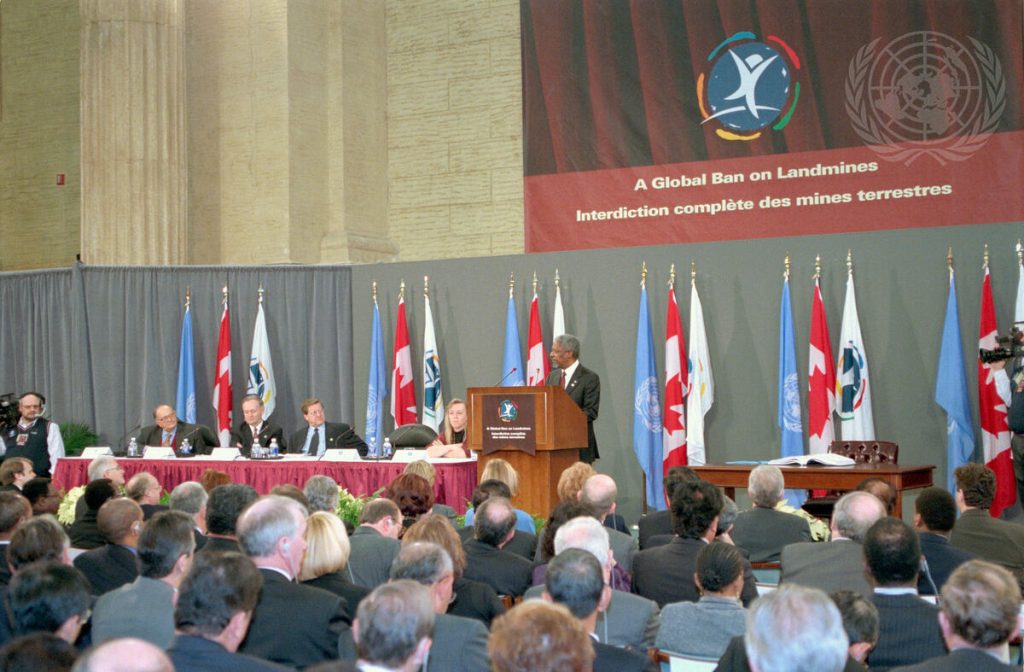
If the imperative to act was already pressing in 1990 – an era of post-Cold War optimism and renewed multilateralism – it is even more urgent today, not driven by hope but by the necessity of navigating a period of profound instability and uncertainty.
This new global context is fraught with dangers for Africa. As the poorest and most vulnerable continent on the international stage, Africa is bearing the full brunt of the reduction in official development assistance, the effects of which are already being acutely felt on the ground. In several countries, this reduction is undermining the provision of basic social services and further weakening already fragile state systems. Geopolitical and other tensions are fuelling renewed quests for influence in Africa, a frenzied race to control critical resources, and a growing internationalisation of the conflicts and crises that afflict the continent. The search for solutions is thus becoming more complex, more opaque, and often disconnected from local priorities – pushing into the background the African multilateral mechanisms patiently built over decades of effort. The weakening of the multilateral system affects Africa more severely than most other regions of the world. Imperfect though it may be, this framework enables the continent to make its voice heard, to build coalitions and to defend its interests. Its erosion risks further marginalising African countries, exposing them to bilateral power dynamics in which their structural vulnerabilities leave them at a severe disadvantage.
Nonetheless, this crisis may also present an opportunity. As devastating as the contraction in international aid may be in the short and medium terms, it could serve as a salutary shock – reminding the continent of the urgent need to reduce its dependency and strengthen its resilience. The Covid-19 pandemic has already provided a stark preview of this structural vulnerability. Amid fierce global competition for vaccine access, Africa found itself virtually abandoned – victim to an international order whose workings often echoed the Hobbesian logic that ‘man is a wolf to man’. A collective response did emerge, driven by the shared fear of impending disaster: joint vaccine purchasing initiatives, continental coordination mechanisms, and renewed calls for health sovereignty.[10] Yet, this flicker of collective action did not survive the fading of the immediate threat. Today, as external support dries up and uncertainties mount, Africa no longer has the luxury of reverting to a posture of passive expectation. It must learn to rely more fully on its own strengths and embed this resolve over the long term, while building concrete solidarities – particularly within the framework of the UN.
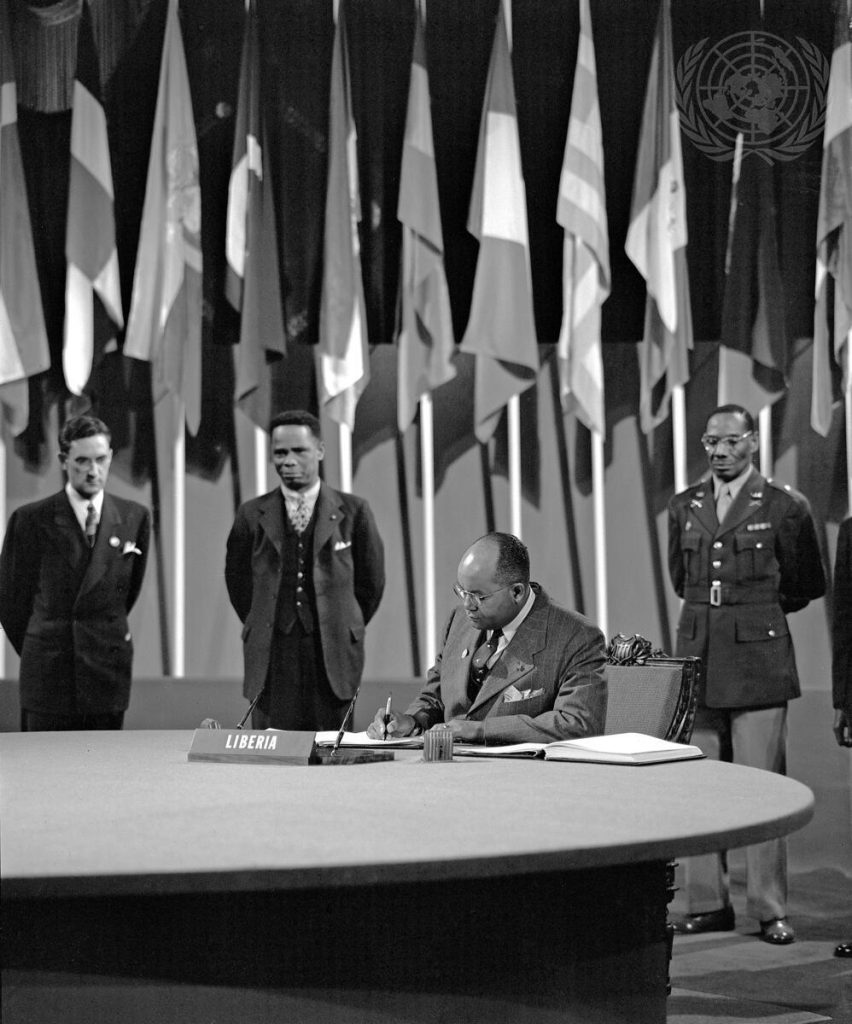
The ongoing reconfiguration of the global order – and the accompanying redistribution of power – can also be harnessed as an opportunity. When the post-war multilateral system was established, with the UN at its core, Africa was virtually absent. At the San Francisco Conference of 1945, only three African states were represented: Egypt, Ethiopia, and Liberia. The Union of South Africa, due to its system of racial discrimination, could not be considered a legitimate representative of the continent. All three bore, to varying degrees, the marks of the injustices and failures of the interwar international system. Africa cannot afford to be absent a second time. It is only by capitalising on its unity that the continent will be able to make a meaningful contribution to shaping the architecture of the emerging global order. If the imperative to act was already pressing in 1990 – an era of post-Cold War optimism and renewed multilateralism – it is even more urgent today, not driven by hope but by the necessity of navigating a period of profound instability and uncertainty.
The good news – beyond the opportunities that persist despite today’s many challenges – is that Africa now possesses assets it lacked in the early 1990s. At that time, it was necessary to build the political, normative, and institutional tools required for collective continental action. That foundational work, initiated in the early decades of the OAU, has largely been accomplished. Today, there is no strategic domain – peace and security, governance, democracy, human rights, economic and social development – in which Africa lacks a relevant continental framework. Agenda 2063, the strategic blueprint adopted in 2015 to guide the continent toward the future it envisions, brings coherence to these instruments and embeds them within a shared long-term vision.[11]
In the economic domain, Africa’s integration agenda is underpinned by major flagship initiatives, including the Single African Air Transport Market (SAATM), launched in January 2018, and the Agreement on the African Continental Free Trade Area (AfCFTA) and Protocol on Free Movement of Persons, Right of Residence and Right of Establishment, both adopted in March 2018.[12] These are supported by a wide array of continental sectoral strategies covering industrialisation, agriculture and food systems, infrastructure, education, science and technology, and environmental sustainability, among others.
In the fields of peace and security, human rights, and governance, the norms adopted by Africa rank among the most advanced in the world. They form a coherent framework, including:
- The African Nuclear-Weapon-Free Zone Treaty (Pelindaba Treaty) of 1996; the Convention on the Prevention and Combating of Terrorism of 1999 and its Additional Protocol of 2004; the Protocol Relating to the Establishment of the Peace and Security Council of 2002 – which drew critical lessons from the functioning and limitations of the Cairo Mechanism, particularly the failure to prevent and halt the 1994 genocide against the Tutsi in Rwanda; and the Non-Aggression and Common Defence Pact of 2005.[13]
- Several complementary instruments to the African Charter on Human and Peoples’ Rights, addressing the rights of children and women, the protection of internally displaced persons, and the right to nationality and eradication of statelessness in Africa.[14]
- The African Charter on Democracy, Elections and Governance of 2007, alongside related legal instruments such as the Convention on the Prevention and Combating of Corruption, and the Charters on Public Service and on Decentralisation.[15]
These normative advances are reinforced by dedicated institutions, including the Peace and Security Council (PSC), the African Peer Review Mechanism (APRM), the AU Advisory Board on Corruption, the African Commission on Human and Peoples’ Rights, the African Court on Human and Peoples’ Rights, and the African Committee of Experts on the Rights and Welfare of the Child.[16]
Yet this impressive normative and institutional arsenal still struggles to deliver the expected results, despite the continent’s immense natural resources, its large and dynamic youth population, and its globally recognised cultural and artistic creativity.
Africa doesn’t lack tools. What is needed now is a paradigm shift: placing the execution of existing commitments at the core of the continental agenda. What is too often treated as a technical matter must be elevated to a political and strategic imperative.
The economic transformation of the continent remains unfulfilled. African exports are still dominated by raw materials, with the region contributing only a tiny share to global manufacturing value added. Intra-African trade stagnates at around 15% – a figure that lags far behind other regions. Air transport remains limited and prohibitively expensive, with costs averaging 50% more than in other parts of the world – even as sub-Saharan Africa is home to nearly 67% of people living in extreme poverty. Infrastructure needs remain immense, with the current annual deficit estimated between US$70 and 110 billion. Despite recent progress, African citizens continue to face significant obstacles when traveling within the continent, requiring visas for nearly half of all intra-African journeys – more than is often required for travellers from non-African countries.[17]
Democratic processes are under strain, most notably due to the resurgence of Unconstitutional Changes of Government (UCGs) – a symptom among others of the continent’s persistent governance crises. On the peace and security front, the picture is equally alarming: several active armed conflicts are unfolding across virtually all regions, while the number of displaced persons exceeds 44 million – nearly 3% of the continent’s population. This unprecedented figure speaks to the scale of the fragilities that have accumulated over time.
This persistent gap between Africa’s normative and political ambitions and the realities on the ground is, above all, the result of limited implementation capacity. Africa does not lack tools; it simply cannot afford to remain caught in an endless cycle of drafting new texts. What is needed now is a paradigm shift: placing the execution of existing commitments at the core of the continental agenda. What is too often treated as a technical matter must be elevated to a political and strategic imperative.
This imperative is all the more pressing given that the ideal of unity – once a powerful driver of pan-African progress – no longer seems to mobilise with the same intensity. A thread has broken: between institutions and citizens, between the vision of integration and the fragmented realities experienced across the continent. Restoring trust in continental unity is essential – not as an abstract aspiration, but as a concrete and necessary condition for renewal. Without this shared conviction, it will be difficult to generate the coherence and momentum required to meet the scale of today’s challenges.
In this light, Salim Ahmed Salim’s 1990 intuition remains deeply relevant for the new AU Commission – which deserves the full support of all – as it embarks on the mandate bestowed upon it. The Commission stands at a pivotal juncture, with a unique opportunity to make an imprint through a bold, forward-looking initiative.
Specifically, the AU Commission must take the initiative of producing a foundational report – akin in spirit to the landmark 1990 document. Such a report should offer a clear-eyed articulation of the challenges facing the continent, deliver an unflinching assessment of its current state, and, above all, put forward responses centred on one core priority: the effective implementation of commitments already made. The report should identify urgent priorities sector by sector, and propose concrete, actionable measures to address them. It should also reaffirm a truth that is widely accepted in principle, but too often not followed through in national practice: no African country can hope to prosper in isolation. Even united, Africa will likely remain on the margins of global power for some time – particularly as reform of the UN Security Council, where Africa is the only continent without a permanent seat, still appears remote. But divided, the continent becomes easy prey in a world that has never spared the weak – and does so even less today. The moment has come for Africa to invest in its internal cohesion, even as it continues to engage the world and cultivate international solidarity.
While the 1990 report is to serve as inspiration, the initiative being proposed here must go further – both in the ambition it embodies and in the scale of mobilisation it seeks to spark. The urgency of the current moment, the complexity of the challenges, and the weight of public expectations demand a response of equal magnitude.
In this effort toward renewal, the AU must occupy a central place. Nothing sustainable can – or should – be conceived outside of it. As the continent’s legitimate institutional framework for unity, the AU is best positioned to articulate Africa’s collective voice and ambitions, and to drive the implementation of its strategies in key areas: peace and security, democracy and human rights, integration, and sustainable development. In this regard, a troubling trend must be reversed: summits held with external partners – whether bilateral or multilateral – often attract more heads of state and government than the AU’s own meetings.
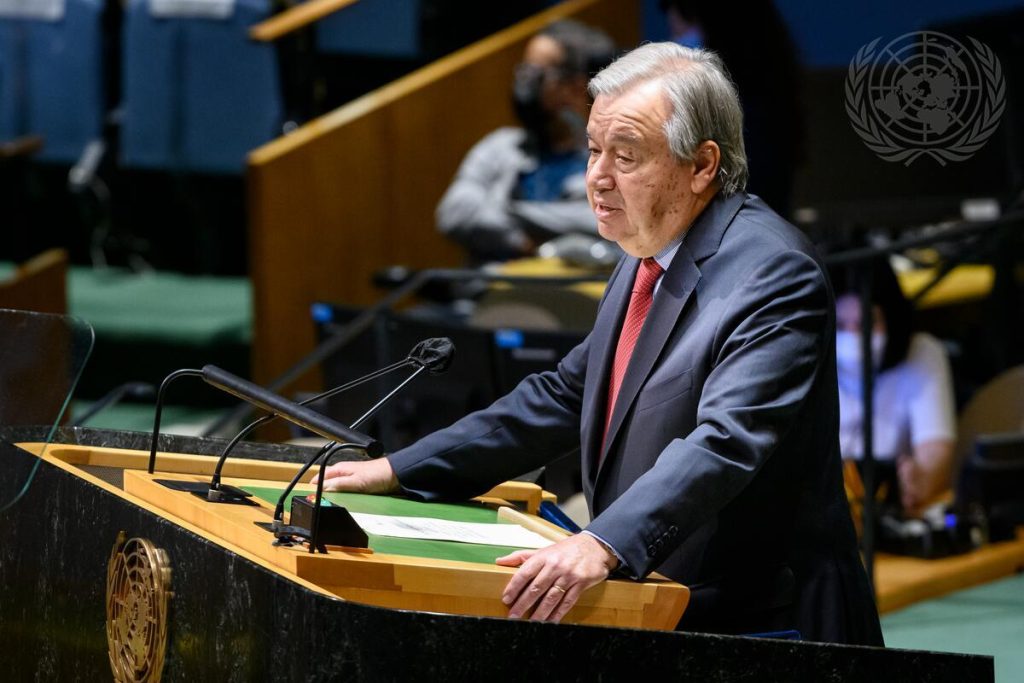
The Commission, more specifically, must chart concrete and effective courses of action, identify levers capable of delivering real impact in the daily lives of the hundreds of millions of Africans who have waited far too long for better prospects, and work to generate political will wherever it is absent or faltering. In this task, imagination and creativity, agility and responsiveness will be its most powerful assets.
While the 1990 report is to serve as inspiration, the initiative being proposed here must go further – both in the ambition it embodies and in the scale of mobilisation it seeks to spark. The urgency of the current moment, the complexity of the challenges, and the weight of public expectations demand a response of equal magnitude. To meet this bar, the development of such a report must be grounded in a process that is both rigorous and inclusive. It cannot be a technocratic exercise undertaken in isolation. Member States must, of course, play a leading role, as should the Regional Economic Communities. However, so too must African civil society, youth and women’s organisations, academic circles and think tanks, entrepreneurs and innovators. In short, all the segments of society whose full potential remains insufficiently tapped and are eager to be engaged.
Once finalised, the report should be presented at an extraordinary AU summit, convened at the Union’s headquarters in Addis Ababa, and bringing together all heads of state and government. Only at this level of political endorsement can it become a genuine catalyst for action. The momentum it seeks to generate must be collective, inclusive, and unwavering.
Of course, no report alone can resolve the continent’s many challenges. In the end, it is just a document. But if well crafted – if it captures imaginations, is grounded in truth, and followed by real commitments – it can serve as a powerful driver of change. Recent history offers compelling examples. In 2021, amid a crisis of confidence in multilateralism and the shock of COVID-19, UN Secretary-General António Guterres released Our Common Agenda, which laid the groundwork for the 2024 Pact for the Future, and other major initiatives.[18] The European Commission recently tasked Mario Draghi with rethinking the foundations of Europe’s global economic competitiveness.[19] Further back, Boutros Boutros-Ghali launched An Agenda for Peace in 1992, reshaping the UN’s approach to the promotion of peace and security. And, at the turn of the millennium, Kofi Annan’s We the Peoples: The Role of the United Nations in the 21st Century became the foundation of the Millennium Summit and its landmark Declaration.[20]
The AU Commission cannot, on its own, guarantee the success of such an endeavour. However, it has a vital role to play: to frame the key issues, encourage member states to live up to their commitments, and engage the African citizenry as an active stakeholder. At critical junctures in history, the act of articulating a vision with clarity and ambition can inspire new momentum and help give rise – through the power of honest reflection – to a renewed collective resolve.
In May 1963, during the debate in Addis Ababa between those favouring a gradual approach to African unity and those advocating immediate political integration, Kwame Nkrumah may have erred by being ahead of his time. Yet history has since validated the essence of his vision: the limitations of the approach adopted at the founding of the OAU are now evident, and the consequences of deferred integration continue to adversely shape the continent’s trajectory. It is now incumbent upon Africa’s leaders – through sustained commitment and tangible action – to do justice to that early intuition, however belatedly.
Authors
Ambassador Said Djinnit of Algeria served as Chief of Staff to Salim Ahmed Salim from 1989 to 1999, before successively holding the positions of Assistant Secretary-General for Political Affairs at the OAU and Commissioner for Peace and Security at the AU. From 2008 to 2019, he was the Special Representative of the UN Secretary-General in West Africa, then Special Envoy of the UN Secretary-General in the Great Lakes Region.
Dr Ibrahim Assane Mayaki of Niger is the former CEO of the AU Development Agency (AUDA-NEPAD), having held this position from 2009 to April 2022. From 1997 to 2000, he served as Prime Minister and Minister of Foreign Affairs of Niger. During his academic career, Dr Mayaki taught in Niger, Venezuela, and France and directed various research centres. He is a Commander of the Order of Agricultural Merit of France and an Associate Member of the French Academy of Agriculture. He has also received the Grand Cordon of the Order of the Rising Sun from Emperor Naruhito of Japan.
El-Ghassim Wane of Mauritania successively held the positions of Head of Conflict Management, Director of Peace and Security, and Chief of Staff at the AU Commission. He also served as Assistant Secretary-General for Peacekeeping at the UN Headquarters in New York, and as Special Representative of the UN Secretary-General in Mali and head of the UN Multidimensional Integrated Stabilization Mission in Mali (MINUSMA). He has been a visiting professor in France, the United Kingdom and the United States.
Endnotes
[1] Djinnit, Said and Wane, El-Ghassim (2020) ‘An African Agenda for Peace, Governance and Development at Thirty’, World Peace Foundation, occasional paper no. 24, Available at: https://worldpeacefoundation.org/wp-content/uploads/2024/03/An-African-Agenda-for-Peace-final.pdf
[2] Salim, Salim Ahmed (2025) ‘Biography Summary’, Available at: https://www.salimahmedsalim.com/about
[3] UNECA (1985) ‘Implementation of the Final Act of Lagos’, Economic Commission for Africa, Available at:
https://repository.uneca.org/bitstream/handle/10855/24668/Bib-50396.pdf?sequence=1&isAllowed=y
[4] OAU (1981) African Charter on Human and Peoples’ Rights, Available at: https://au.int/sites/default/files/treaties/36390-treaty-0011_-_african_charter_on_human_and_peoples_rights_e.pdf ; OAU (1969) ‘OAU Convention Governing the Specific Aspects of Refugee Problems in Africa’, Available at: https://au.int/sites/default/files/treaties/36400-treaty-36400-treaty-oau_convention_1963.pdf
[5] OAU (1990) ‘Declaration on the Political and Socio-Economic Situation in Africa and the Fundamental Changes Taking Place in the World’, Available at: https://au.int/sites/default/files/decisions/9535-1990_ahg_res_190-200_xxvi_e.pdf
[6] AU (1991) ‘Treaty Establishing the African Economic Community’, Available at: https://au.int/sites/default/files/treaties/37636-treaty-TREATY_ESTABLISHING_THE_AEC-compressed.pdf ; OAU (1993) ‘Cairo Declaration on the Occasion of the Thirtieth Anniversary of the Organization of African Unity’, Available at: https://au.int/sites/default/files/decisions/9538-1993_ahg_res_218-227_xxix_e.pdf ; OAU (2000) ‘Declaration on the Framework for an OAU Response to Unconstitutional Changes of Government’, Available at: https://www.peaceau.org/uploads/ahg-decl-5-xxxvi-e.pdf ; OAU (2000) ‘Solemn Declaration on the Conference on Security, Stability, Development and Cooperation in Africa’, Available at: https://www.peaceau.org/uploads/ahg-decl-4-xxxvi-e.pdf
[7] OAU (2000) ‘Solemn Declaration’, op. cit.; OAU (2002) ‘Memorandum of Understanding on Security, Stability, Development and Cooperation in Africa’, Available at: https://www.aprmtoolkit.saiia.org.za/documents/the-standards-library/130-atkt-cssdca-mou-2002-en/file ; OAU (2000) ‘Decision on the Conference on Security, Stability, Development and Cooperation’, Available at: https://www.peaceau.org/uploads/ahg-dec-175-xxxviii-e.pdf
[8] Djinnit and El-Ghassim (2020) ‘An African Agenda for Peace’, op. cit.
[9] International Committee of the Red Cross (2025) ‘Mines antipersonnel: les fausses promesses de sécurité offertes par les régimes d’exception en temps de guerre’ [‘Anti-personnel mines: the false promises of security offered by emergency regimes in times of war’], Available at: https://blogs.icrc.org/law-and-policy/fr/2025/04/02/mines-antipersonnel-les-fausses-promesses-de-securite-offertes-par-les-regimes-d-exception-en-temps-de-guerre
[10] Wane, El-Ghassim (2020), ‘Covid Response Reflects Africa’s New Mindset’ in Emirates Diplomatic Academy (2020) ‘Pandemic Diplomacy: Reflections on Innovative Adaptations During the Covid-19 Crisis’, Available at: https://www.agda.ac.ae/docs/default-source/Publications/pandemic-diplomacy-dec-2020-eng.pdf?sfvrsn=732b6c3b_4
[11] AU (n.d.) ‘Agenda 2063: The Africa We Want’, Available at: https://au.int/en/agenda2063/overview
[12] AU (2018) ‘Regulatory and Institutional Texts for the Implementation of the Yamoussoukro Decision and Framework Towards the Establishment of a Single African Air Transport’, Available at: https://au.int/sites/default/files/treaties/37308-treaty-yamoussoukro_decision_regulatory_texts_e.pdf ; AU (2018) ‘Agreement Establishing the African Continental Free Trade Area’, Available at: https://au.int/sites/default/files/treaties/36437-treaty-consolidated_text_on_cfta_-_en.pdf
[13] AU (2004) ‘Protocol to the OAU Convention on the Prevention and Combating of Terrorism’, Available at: https://au.int/sites/default/files/treaties/37291-treaty-0030_-_protocol_to_the_oau_convention_on_the_prevention_and_combating_of_terrorism_e.pdf ; AU (2002) ‘Protocol Relating to the Establishment of the Peace and Security Council of the African Union’, Available at: https://au.int/sites/default/files/treaties/37293-treaty-0024_-_protocol_relating_to_the_establishment_of_the_peace_and_security_council_of_the_african_union_e.pdf ; AU (2005) ‘African Union Non-Aggression and Common Defence Pact’, Available at: https://au.int/sites/default/files/treaties/37292-treaty-0031_-_african_union_non-aggression_and_common_defence_pact_e.pdf
[14] OAU (1990) ‘African Charter on the Rights and Welfare of the Child’, Available at: https://au.int/sites/default/files/treaties/36804-treaty-african_charter_on_rights_welfare_of_the_child.pdf ; AU (2003) ‘Protocol to the African Charter on Human and Peoples’ Rights on the Rights of Women in Africa’, Available at: https://au.int/sites/default/files/treaties/37077-treaty-charter_on_rights_of_women_in_africa.pdf ; AU (2009) ‘African Union Convention for the Protection and Assistance of Internally Displaced Persons in Africa (Kampala Convention)’, Available at: https://au.int/sites/default/files/treaties/36846-treaty-kampala_convention.pdf ; AU (2023) ‘Protocol to the African Charter on Human and Peoples’ Rights on the Specific Aspects of the Right to a Nationality and the Eradication of Statelessness in Africa’, Available at: https://au.int/sites/default/files/treaties/44126-treaty-EN_Protocol_on_Citizenship_and_Nationality.pdf
[15] AU (2007) ‘African Charter on Democracy, Elections and Governance’, Available at: https://au.int/sites/default/files/treaties/36384-treaty-african-charter-on-democracy-and-governance.pdf ; AU (2003) ‘African Union Convention on Preventing and Combating Corruption’, Available at: https://au.int/sites/default/files/treaties/36382-treaty-0028_-_african_union_convention_on_preventing_and_combating_corruption_e.pdf ; AU (2011) ‘African Charter on the Values and Principles of Public Service and Administration’, Available at: https://au.int/sites/default/files/treaties/36386-treaty-charter_on_the_principles_of_public_service_and_administration.pdf ; AU (2014) ‘African Charter on the Values and Principles of Decentralisation, Local Governance and Local Development’, Available at: https://au.int/sites/default/files/treaties/36387-treaty-0049_-_african_charter_on_the_values_and_principles_of_decentralisation_local_governance_and_local_development_e.pdf
[16] AU (n.d.) ‘African Peer Review Mechanism (APRM)’, Available at: https://aprm.au.int/en ; AU (n.d.) ‘African Union Advisory Board against Corruption’, Available at: https://anticorruption.au.int/en/home ; AU (n.d.) ‘African Commission on Human and Peoples’ Rights’, Available at: https://achpr.au.int/en ; African Court on Human and Peoples’ Rights (n.d.) ‘African Court on Human and Peoples’ Rights,’ Available at: https://www.african-court.org/wpafc ; ACERWC (n.d.) ‘African Committee of Experts on the Rights and Welfare of the Child’, Available at: https://www.acerwc.africa/en/page/african-committee-experts-rights-and-welfare-child
[17] AfDB (2023) ‘2023 Africa Visa Openness Report’, Available at: https://www.afdb.org/en/documents/2023-africa-visa-openness-report
[18] UN (2020) Our Common Agenda – Report of the Secretary-General, New York: UN, Available at: https://www.un.org/en/content/common-agenda-report/assets/pdf/Common_Agenda_Report_English.pdf ; UN (2024) Pact for the Future, Global Digital Compact and Declaration on Future Generations, New York: UN, Available at: https://www.un.org/sites/un2.un.org/files/sotf-pact_for_the_future_adopted.pdf
[19] EU Commission (2024) ‘The Draghi report on EU competitiveness’, Available at: https://commission.europa.eu/topics/eu-competitiveness/draghi-report_en
[20] Annan, Kofi (2000) We the Peoples: The Role of the United Nations in the 21std Century, New York: UN, Available at: https://digitallibrary.un.org/nanna/record/413745/files/We_The_Peoples%2520(1).pdf?withWatermark=0&withMetadata=0 ; UN (2000) ‘United Nations Millennium Declaration’ Available at: https://digitallibrary.un.org/nanna/record/422015/files/A_RES_55_2-EN.pdf?withWatermark=0&withMetadata=0
- AU, multilateralism, OAU, UN
By:



